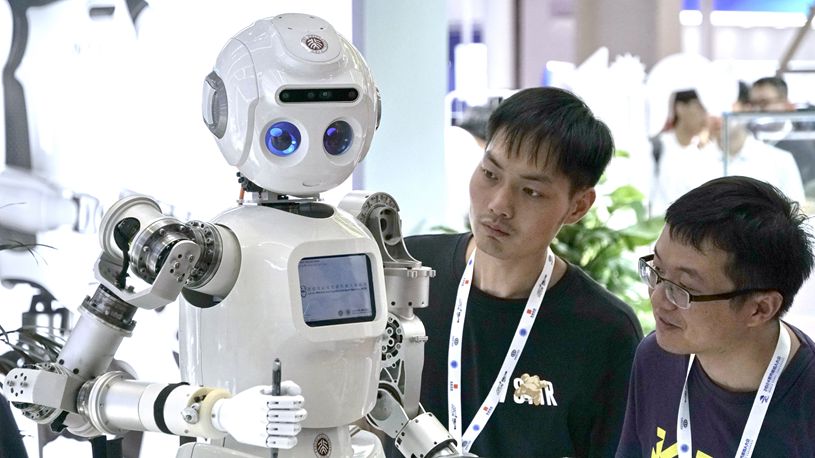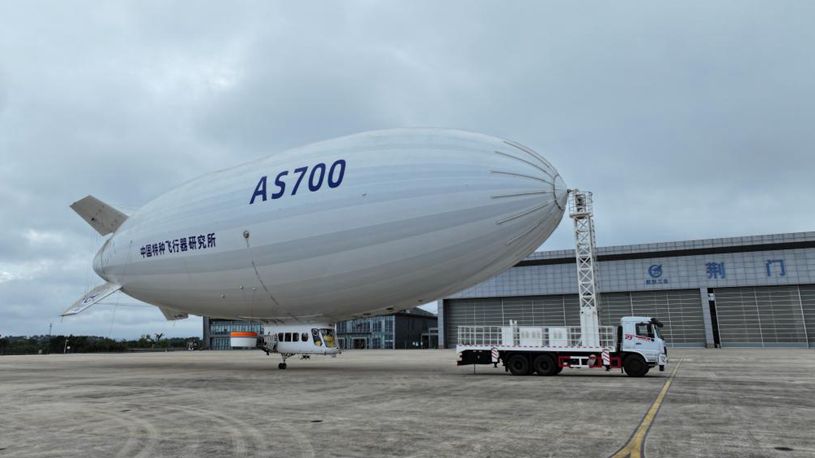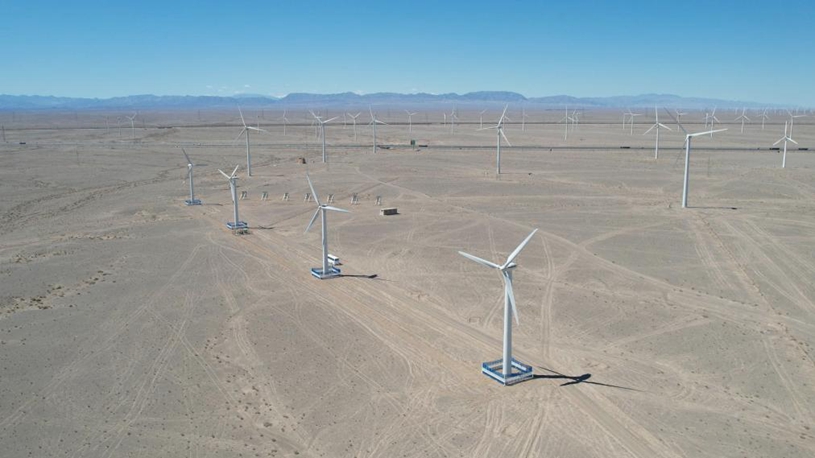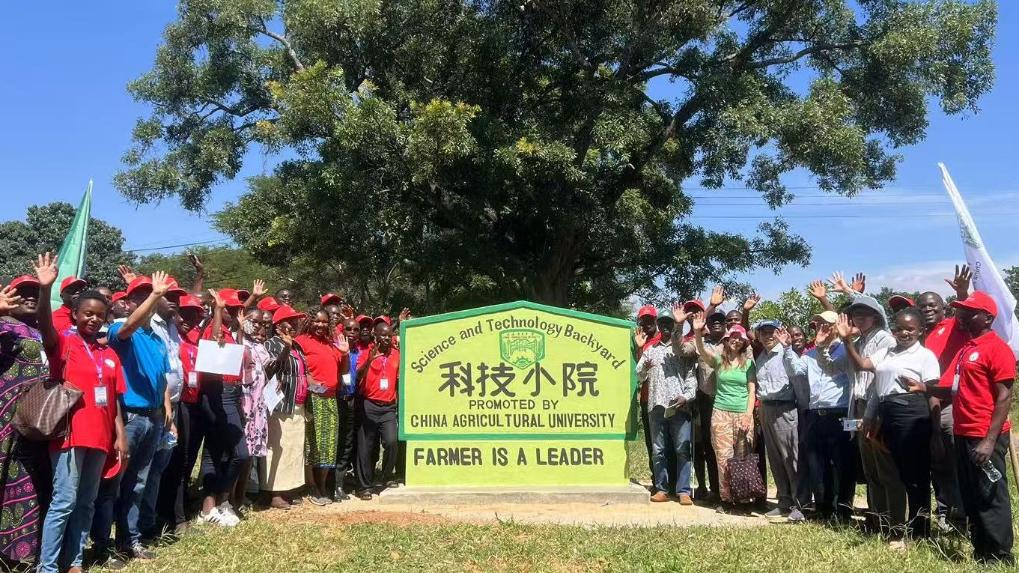HARBIN, Aug. 23 (Xinhua) -- At a farm owned by China's leading agricultural conglomerate, Beidahuang Group, a tech specialist selects a soybean plot on the digital map displayed in the command center, instantly deploying a nearby drone for aerial surveillance.
Within about ten minutes, the drone transmits data on soybean plant growth, pest conditions and plant diseases to the command center, where a multispectral map is generated, offering insights for targeted fertilization and treatment.
"The smart system uses drones and high-precision multispectral imaging to generate maps that reveal plant health," explained Gao Weiwei, the technician at No. 855 Farm Co., Ltd. "In these images, red areas indicate relatively poor growth, while blue areas show good growth."
Data collected by drone flights in the fields enables farmers to monitor real-time soil humidity and develop targeted fertilization and pesticide strategies, he said.
In a farming area managed by Qixing Farm Co., Ltd. under the Beidahuang Group, headquartered in northeast China's Heilongjiang Province, a row of intelligent electric box devices is installed in the paddy fields.
These sensors transmit data from the field, allowing growers to monitor rice plant growth, prevent pests and diseases and optimize nutrient supplementation, said Wang Yong, a technician of the company, noting that the smart network providing real-time messages has made farming management more efficient and convenient.
Digitalization has propelled the farm's modernization efforts. Last year, Qixing achieved an average rice yield of 630 kg per mu (9,450 kg per hectare), with the highest yield reaching 836.3 kg per mu, alongside bumper harvests of corn and soybeans.
Dubbed as China's grain barn, Heilongjiang has taken the lead in the country's agricultural modernization. The province's grain output reached 77.88 billion kg in 2023, securing its position as China's top producer for the 14th consecutive year.
As the province's leading agricultural arm, Beidahuang Group has established Yanjiagang Farm Co., Ltd., a smart farm demonstration on the outskirts of the provincial capital Harbin, showcasing the company's comprehensive and integrated smart agricultural network.
Speaking to Xinhua, Guo Teng, a technician at the farm, explained how farming is handled using the Beidahuang Smart Agricultural Service App on a mobile phone.
"Select a plot on the app to control remotely. For irrigating or draining a rice field, there is no need for manual work. The network monitors the water volume in the field and controls the sluice switch at the pumping station," he demonstrated.
The farm now covers 6,588 mu (439.2 hectares) of crop planting area. The rice plants are growing well, and a harvest is expected in early October, according to Gao.
To achieve this level of digital management, Beidahuang Group has made substantial investments in smart agricultural infrastructure. This includes establishing a fiber optic communication network supported by 25,300 kilometers of communication lines and 110,000 agricultural sensors for environmental monitoring, crop growth assessment and soil detection across farming areas.
In 2021, it established a secondary subsidiary, Beidahuang Information Company, to advance its smart agriculture platform. The company has R&D centers in Beijing and Wuhan, employing over 260 research staff. By developing hardware and software products and gathering agricultural data, the tech firm has significantly accelerated the transition to modern agriculture.
Gong Jianguang, chief technology officer at the Beidahuang Information Company, said that the company has developed a digital map that displays all agricultural resource base farms owned by Beidahuang Group, encompassing more than 45 million mu of arable land, with each farming area and plot coded and labeled.
"This large model, operational since May, employs advanced artificial intelligence technologies, including natural language processing and machine learning algorithms. It incorporates planting data from cold regions like Heilongjiang and the extensive agricultural experience accumulated by the Beidahuang Group," Gong said.
The agricultural conglomerate has also forged cooperation with the Harbin Institute of Technology, Northeast Agricultural University and other research institutions to advance smart agriculture, focusing on AI-driven seed breeding, planting, grain logistics and processing. ■











